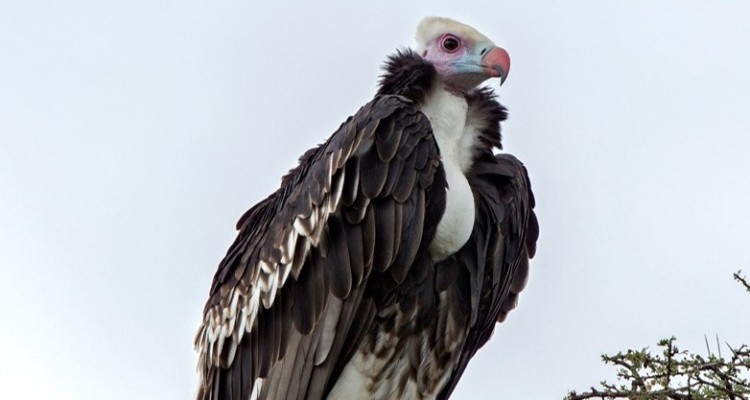NAIROBI – Conservationists have raised concern over the decrease in numbers of African vultures as a result of massive poisoning resulting from human-wildlife conflict.
Across the continent, vulture numbers have declined rapidly, with some of the species classified by the International Union for Conservation and Nature as endangered or critically endangered.
“Poisoning accounts for over 60 percent of recorded vulture deaths in Africa. In most cases, this happens when predators kill livestock and herders poison the carcass to kill the predators. Poachers also poison vultures,” stated Nature Kenya, BirdLife International and the Peregrine Fund in a joint statement.
In Africa, especially within the pastoral communities, rates of vultures dying are believed to be higher as a result of indiscriminate poisoning in a move to eradicate predators preying on both human and livestock.
The declining number of vultures, according to conservationists, might spell doom to the human health as they help reduce the spread of diseases like anthrax, tuberculosis and brucellosis by clearing carcasses before disease spores can form.
It is estimated that a vulture is worth over US 11,000 dollars for its ‘cleaning services’ according to research by BirdLife international.
“The use of poisons in poaching is also having a massive impact on vultures. Between 2012 and 2014, more than 2,000 vultures were killed in nearly a dozen poaching-related incidents in seven African countries,” the statement reads
According to species and site manager Nature Kenya Mr Paul Gacheru, vultures are facing massive decline in numbers in Kenya and across borders as a result of poisoning and ecosystem altercations.
“Last month alone, more than 26 vultures were reported dead around Maasai Mara, at the same time, over 170 vultures died in Tanzania as a result of eating suspected poisoned carcases of lions,” Mr Gacheru said.
In Kenya, four out of seven vulture species found in are critically endangered and face rapid decline in numbers as a result of poisoning.
“By halting the spread of diseases, they are worth much more, more to the governments in saved health services costs, not to mention tourism,” Birdlife international noted.
According to BirdLife, many African vulture populations have declined by up to 98 percent, a situation that demonstrates the extinction threat vultures face.
“These unsung heroes face mass poisonings, catastrophic and unprecedented population declines, and negative perceptions – when in fact they are nature’s sanitary workers, worthy of celebration,” reads a report posted on its birdlife.org
The incidences are rampant in areas including Maasai Mara, Laikipia, Tsavo and Kajiado where he said the communities resort to poisoning the predators including lions and hyenas.
The main species targeted for poisoning are carnivores lions, hyenas and leopards which kill livestock. Vultures are mainly unintended victims of these poisoning events.
One poisoned carcass, the report notes, can lead to cascading effects leading to multiple deaths- each animal that is poisoned presents a risk of further predator and scavenger poisoning.
The four listed as as Critically Endangered include the white headed vulture, the hooded vulture, white-backed vulture and Rupell’s Vulture. Two other species, Lappet-faced and Egyptian vultures, are listed as Endangered.
Poaching, is also said to be a contributor of the declining numbers of vultures where poachers use poison to kill them to avoid giving the presence of the illegally killed game.
Conservationists, cites that awareness on the need to avoid the use of poison will greatly help in conserving the ecosystem.
The importance of vultures, however is often overlooked, according to Bird Life international as they are perceived as greedy.
To help champion for the need to preserve vultures, Bird Life International, Nature Kenya and the Peregrine Fund among other conservation stakeholders have developed guidelines on how to respond to incidents of wildlife poisoning.



